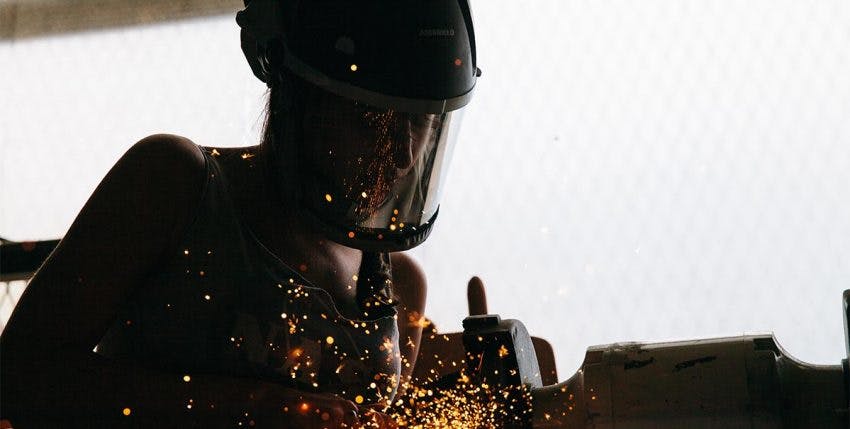



The regular use of heavy machinery requires strict safety precautions that should be followed by all employees at all times.
Workplace safety takes more than just best practices and policies; it really comes down to how well the team, both on the factory floor and in management, follow and communicate the company’s safety standards.
It is essential to encourage employees to identify unsafe working behaviours and constantly raise opportunities for improvements in workplace safety. It can be a real challenge to get your team members involved and interested in manufacturing safety training. However, these tips can go along way to keep your staff safe while at work.
One of the most effective ways to keep your staff members safe is through clear and accessible training programmes. An employee could be highly skilled and experienced in the manufacturing industry, but that does not mean they don’t need regular and extensive training for every aspect of their job.
In the manufacturing sector employees are required to undergo many various tasks, and whether it is chemical handling or operating a forklift, your employees should be thoroughly educated about safety procedures. It is never enough to assume your employees will always use their common sense when it comes to safety in the workplace, so make sure to properly outline the best techniques and practices they should follow to make their jobs easier and safer.
It isn’t uncommon in the manufacturing industry to reward employees for doing everything in their power to complete a job before a specific deadline. The downside of these seemingly harmless rewards is that you will be promoting a ‘whatever it takes’ mentality in the workplace.
This often results in a compromise on safety procedures in order to increase production and to complete jobs on time. Be very clear with your team that safety should always come first and should always be the priority over producing the highest possible numbers.
You cannot expect your workforce to take the necessary precautions unless you make the tools and resources they need immediately accessible. Ensure you are giving your team access to steel toe boots, helmets, safety glasses and personal lines on safety devices.
Don’t make the process of getting these tools lengthy or complicated, keep equipment processes short and simple and make sure they are always a top priority among every member of staff.
In order to provide a safe working environment for your employees, it is essential to keep all machines, tools and equipment running properly. If you don’t keep up with regular maintenance, the items in your factory will fail to work as intended. Not only do poorly maintained machines put your workers at risk, it also decreases efficiency and production because of so much time needed for repairs.
A huge number of work-related injuries and illnesses happen because a worker is tired and not properly alert to their surroundings. Encourage your team to take regular breaks to help them stay fresh and focused on the job.
A good trick to keeping your workplace alert is to schedule the most difficult tasks for times when concentration levels are at their highest, like first thing in the morning or at the beginning of a shift.
Work in the manufacturing industry involves a lot of extensive and complicated processes that require specialist insurance to protect both the business and staff against the risks involved. Manufacturing insurance is usually a combination of a number of different covers to provide comprehensive protection. In most cases, manufacturing insurance will cover your buildings, stock, machinery and your staff.
Good housekeeping is essential in a factory environment. Slips and trips are the second leading cause of nonfatal occupational injuries, so it is important to ensure all walkways and aisles are kept clear and any spills are cleaned immediately.
Make sure emergency exits are kept clear at all times and any equipment shutoffs are always easily accessible. All equipment should have its own designated storage area where it is kept at all times when not in use.
Your workplace should always comply with fire safety laws and regulations. If you use combustible materials, be careful only to keep the amount required onsite at any one time and always store flammable material in a safe place when it’s not being used. Any waste that is combustible and could be seen as a fire hazard should be securely stored in metal receptacles and thrown away daily.